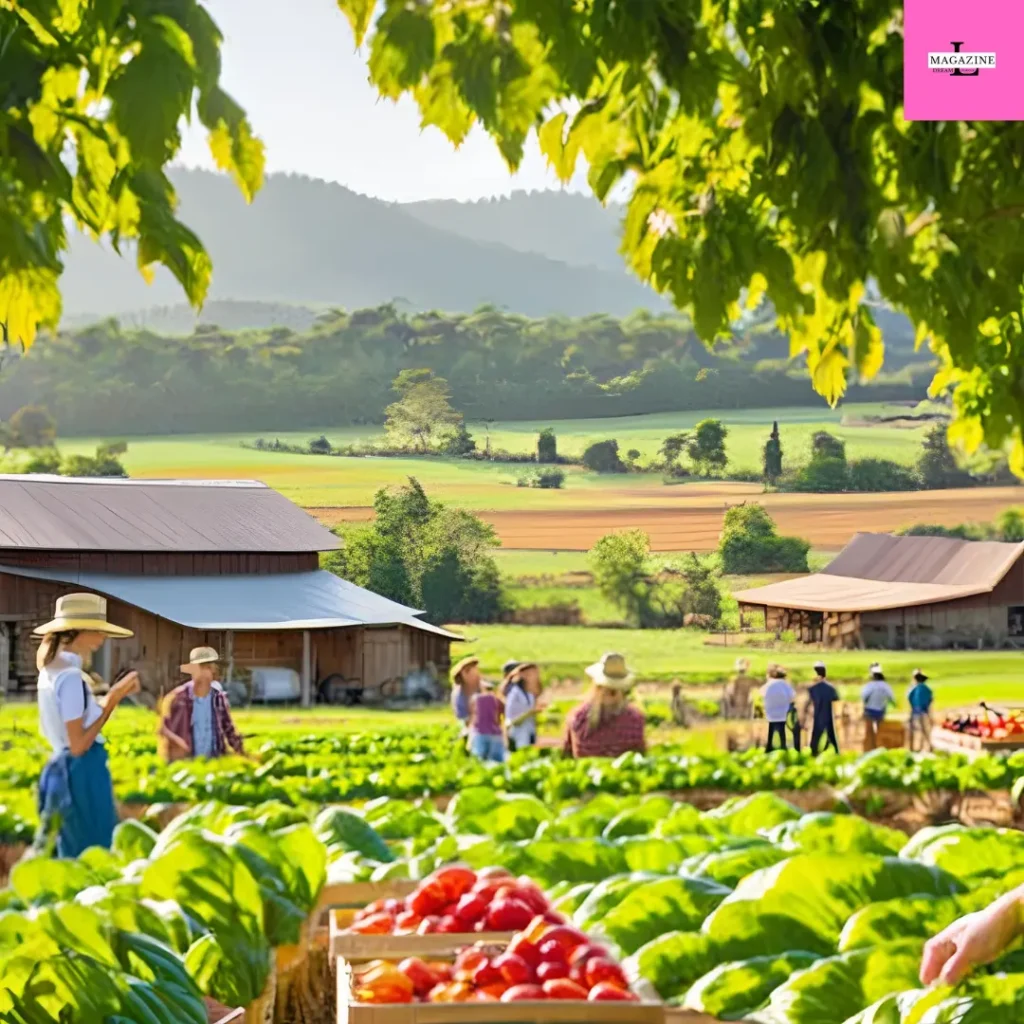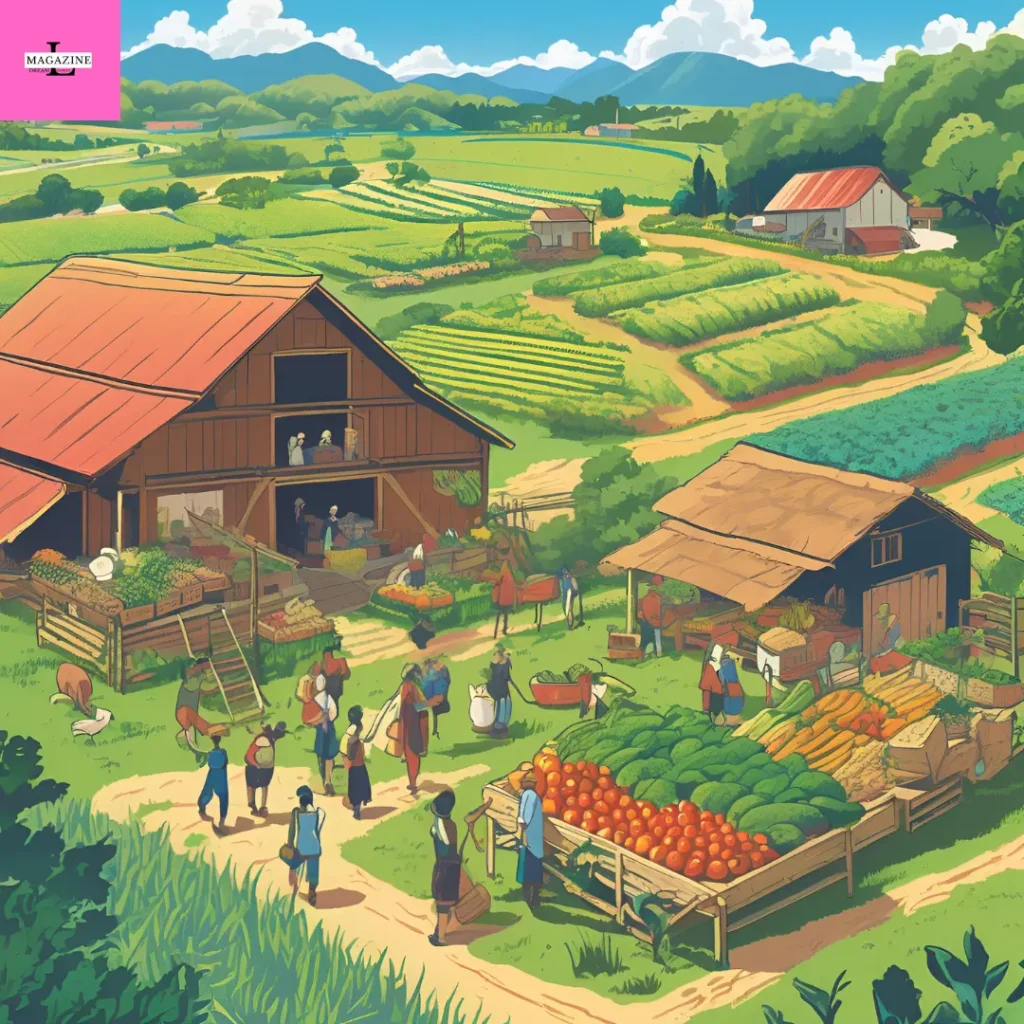Agri-tourism is a unique and growing type of tourism that brings travelers closer to rural and farming communities, providing an immersive look into agricultural life. This approach invites visitors to explore farms, ranches, and rural areas where they can engage in a variety of activities like fruit-picking, wine tasting, and farm-to-table dining, as well as animal care and farming. Agritourism offers an experience that combines fun, education, and a deeper connection to nature.
Beyond just a fun outing, agritourism also educates people about food sources, sustainable practices, and eco-friendly lifestyles. It gives farmers an additional way to earn income by welcoming visitors, which can boost local economies. Travelers can enjoy rural homestays, explore nature trails, and take part in organic farming or craft workshops, making this type of tourism appealing to families, students, and solo travelers.
Agritourism doesn’t just benefit the economy—it strengthens bonds between city dwellers and rural communities, helping people appreciate the hard work behind agriculture. By combining travel with hands-on farming experiences, agritourism promotes a love for nature, supports sustainable farming, and helps preserve local traditions and landscapes for future generations.

Agri-tourism offers diverse experiences
Harvest festivals bring communities together to celebrate the season’s bounty, embracing the farm-to-table philosophy that highlights fresh, locally sourced produce. Visitors can enjoy immersive encounters with livestock, alongside workshops that teach the principles of animal husbandry. For those interested in sustainable agriculture, organic farming and permaculture classes offer insights into eco-friendly practices. Rural homestays allow guests to experience the warmth of village life, with tours guided by locals, offering an authentic connection to the land and its people. Artisanal food and craft workshops add another layer to the experience, where participants learn traditional techniques to create unique, handmade products.
Agri-tourism benefits both travelers and local communities
Travelers gain:
- Hands-on agricultural knowledge
- Cultural immersion and exchange
- Unique, authentic experiences
Local communities benefit from:
- Economic growth through tourism revenue
- Preservation of traditional farming practices
- Cultural revitalization and community engagement



Emerging Destinations
Agri-tourism hotspots include:
- Italy’s Tuscany region
- Costa Rica’s eco-lodges
- India’s organic farms
- Australia’s outback cattle stations
- Africa’s rural villages

Challenges and Opportunities
As agri-tourism grows, challenges arise:
Balancing tourism with environmental sustainability is essential to protecting natural resources while providing enriching travel experiences. Responsible agritourism prioritizes eco-friendly practices, such as waste reduction, sustainable farming, and limited visitor impact, ensuring that tourism supports rather than depletes the environment. Equally important is fair compensation for local farmers, who play a central role in agritourism. Fair wages and financial support can encourage farmers to maintain traditional agricultural practices and host visitors, benefiting both their livelihoods and the local economy. Developing rural infrastructure, such as roads, clean water access, and visitor facilities, is also critical for making these areas accessible and enjoyable. Together, these efforts create a tourism model that respects the environment, supports local communities, and offers authentic experiences.
Despite these challenges, agri-tourism presents opportunities for:
Rural development and poverty alleviation are key benefits of agritourism, as it brings income to remote communities and creates job opportunities, helping to improve living standards. Through agritourism, travelers engage in cultural preservation and exchange, gaining insights into local traditions, languages, and crafts while sharing their own cultural perspectives. This exchange not only enriches visitors but also empowers local communities to celebrate and maintain their heritage. Agritourism also promotes sustainable agriculture and environmental stewardship, encouraging eco-friendly practices like organic farming, biodiversity conservation, and soil preservation. Together, these elements foster a tourism model that uplifts rural areas, preserves cultural identity, and protects the environment for future generations.


For Advertisment & Article Conatct :+91 7321012159